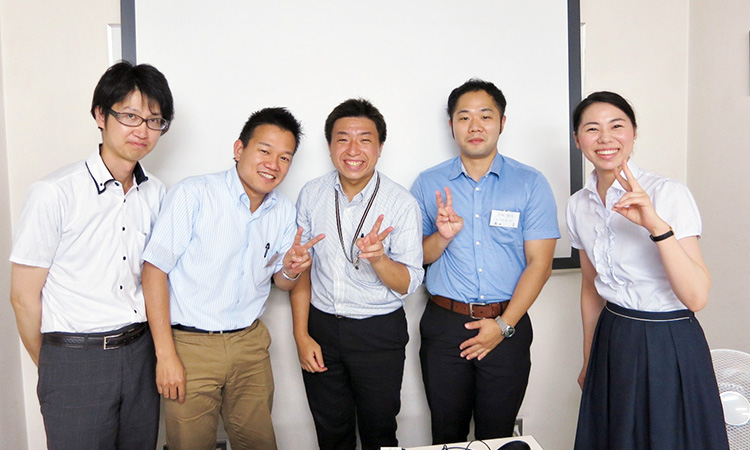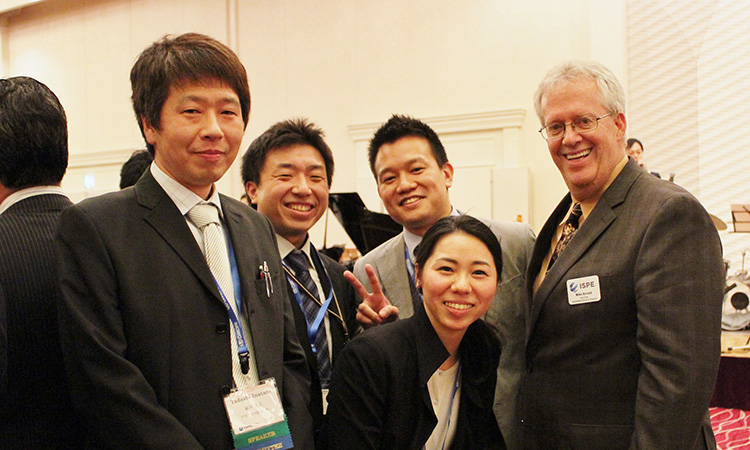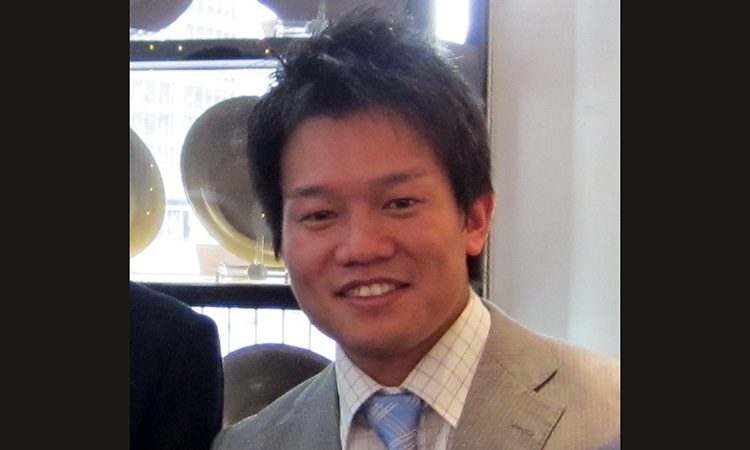
There’s an adage that says “the first step in getting anywhere is knowing where you want to go.” That certainly seems to hold true for Japanese Young Professional Takenori Sumi, who not only has mapped out the things he must learn to advance his career, but also has a clear idea of where the pharmaceutical industry itself is headed.

Born in 1989 in the Fukuoka Prefecture on Japan’s main island of Kyushu, Sumi is a young man with a love of Japanese dishes like tonkotsu ramen, motsunabe hot pot, and mentaiko, as well as a fondness for watching James Bond movies while drinking Scotch. He graduated from the Keio University Faculty of Science and Technology in 2011, and completed his master’s course at the Keio Graduate School of Fundamental Science and Technology. He majored in the organic synthesis of natural products and the electrosynthesis of organic chemistry, with specific research on the study of synthetic macrolide compounds and electrochemical reaction mechanisms via boron-doped diamond electrodes.
As with most people, Sumi’s education has continued on the job. Following graduation, he joined the Japanese specialty pharmaceutical firm Asahi Kasei Pharma Corporation, which has a global presence and focuses on the development of new drugs in selected therapeutic fields. “I was assigned to the Nagoya pharmaceutical plant, our formulation plant, as a pharmaceutical engineer,” says Sumi. “I was assigned to the Pharmaceutical Technology Department and engaged in establishing the manufacturing process, involving qualification and verification of oral dosage and injection.”

Still very new in his career, Sumi already sees some areas where he would like to grow. “I have a great interest in the study of optimizing drug formulation,” he says. “Since joining the company, I have consistently been involved in pharmaceutical manufacturing. Therefore, I understand the manufacturing processes for both oral dosage and injection. On the other hand, I have no experience with designing drug formulation as the upstream development process of manufacturing. I believe that acquiring knowledge of drug formulation is helpful for establishing a robust manufacturing process.
“In addition, I need overseas experience for my career as a pharmaceutical engineer. Since I have no experience with going abroad in a business situation, I am sure that such experience will lead to my own growth.”
Sumi views ISPE as a catalyst for personal growth. “As far as foreign experience goes, I feel that ISPE offers many fascinating opportunities to communicate with overseas companies and regulatory authorities,” he says. “While I have only been involved in the events held by the Japan Affiliate thus far, I would like to attend international ISPE events in the future.”
Sumi’s first contact with ISPE was at the Japan Affiliate’s eighth Young Professionals seminar in September 2014. The seminar was on the basics of oral solid dosage, and Sumi had been assigned to OSD jobs for the first time. “I remembered that there was a good-feeling atmosphere to ask questions and communicate with each other,” he says. “Since then, I have attended the YP seminar many times. At the 2016 Japan Affiliate Annual Meeting in April, the YP workshop was held and I had a great opportunity to make a presentation at the twelfth YP seminar as a representative of all attendees.” Sumi says he appreciates ISPE’s place in the pharmaceutical industry and how it provides access to beneficial technological information as well as opens communication channels between industry and regulatory authorities. “ISPE’s Baseline Guides are widely accepted in the pharmaceutical industry,” he says. “We [members] can expand our knowledge and build a wide human network through ISPE. And the Japan Affiliate offers new technological information at the YP seminars at a reasonable and affordable price.”

As he looks ahead to the next decade in the pharmaceutical industry, Sumi predicts that more efficient manufacturing will be a dominant theme. “Therefore, the role of the pharmaceutical engineer will be increasingly important,” he says. “As an example, continuous manufacturing process has received a lot of attention in recent years. To develop the continuous manufacturing process, it is important that the pharmaceutical industry and regulatory authorities move forward though cooperation. I believe ISPE can activate communication and enable the sharing of opinions and ideas.
“I strongly believe that pharmaceutical engineers can contribute to the development of the pharmaceutical industry by speaking actively through ISPE events. And I feel it important that the YPs of the world have more relationships with each other. By involving YPs with each other, new and unique technology can be created; this leads to the further development of the pharmaceutical industry. ISPE will be the trigger to promote communications between YPs and I will be happy to help achieve the transnational communications with YPs in the years ahead,” he concludes.
Lorrie Vuolo-Schuessler has been involved with ISPE and GAMP® projects since 2002. She has authored or co-led 11 ISPE GAMP-focused guidance documents, including ISPE GAMP® 5: A Risk-Based Approach to Compliant GxP Computerized Systems (Second Edition) and the ISPE GAMP® Good Practice Guide: Enabling Innovation - Critical Thinking, Agile, IT Service Management. She is Immediate Past Chair of...
An ISPE member since 1999, Charlie Wakeham has been active within the ISPE GAMP® community since 2001. A founding member of the GAMP UK Community of Practice (CoP), she is currently Chair of the GAMP Global CoP Steering Committee, one of the leaders of the GAMP Computer Software Assurance Special Interest Group (SIG), and a member of the ISPE Guidance Documents Committee. She has co-led or...
Pharmaceutical Engineering® magazine is proud to announce that the 2022 Roger F. Sherwood Article of the Year is “Supporting Cell and Gene Therapy through...